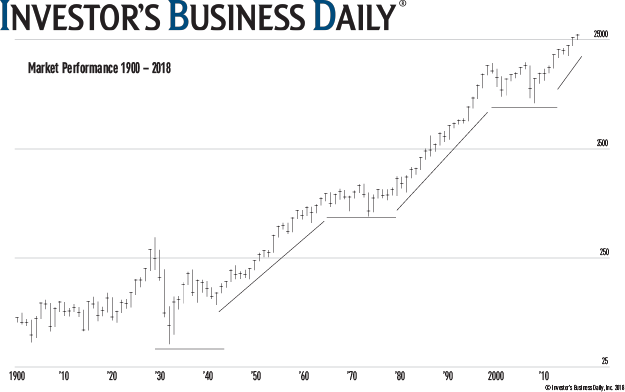Okay, here's the scenario for Andrew from Louisville, our caller in the first two segments this weekend. Recently retired and now finding himself worrying about his asset allocation. What is the right mix when it comes to stocks and bonds? Is he being too aggressive? Or is he good to go and doesn't even know it?
More emails to round out the first hour. We're making a little progress as we are now answering emails from June. That's the good news. The bad news is that July is just about over. Sigh...
Should you incorporate big picture, economic trends into your investment strategy? Or should you adhere to a “set it and forget” mindset?
The answer depends on your time horizon, according to our guest, Justin Nielsen, the Market Research Director at Investors Business Daily. You may recall that Justin was on the show last month with his colleague, Chris Gessel, discussing passive versus active investing, but today we have him to ourselves.
Whether it’s a trade war, inflation, tax policy or interest rates that moves markets, Justin says that if you are a long-term investor, any distinct event “is a blip." How much of a blip? Well check out this neat chart that he provided:
You can see that going back more than a century, there are long, 15 to 20 year cycles. Whether it's the Roaring 20s, Post World War II, 80s and 90s Dot com run-up, there are always times of down or sideways action…it’s just part of the longer cycle. That means that as uncertain and scary events occur, you need to remind yourself, that they are simply part of being an investor.
And for you geeks out there, we even talk about the YIELD CURVE, which is just a way to compare short-term interest rates (the federal-funds rate) and long-term interest rates (the 10-year U.S. Treasury bond). It also happens to be one of those weird market indicators that can presage recessions and stock bear markets.
You can go here for more information on Investor's Business Daily.
Have a money question? Email me here.
Connect with me at these places for all my content:
https://twitter.com/jillonmoney
https://www.facebook.com/JillonMoney
https://www.instagram.com/jillonmoney/
https://www.linkedin.com/in/jillonmoney/
http://www.stitcher.com/podcast/jill-...
"Jill on Money" theme music is by Joel Goodman, www.joelgoodman.com.
![Jill on Money [ Archive]](http://images.squarespace-cdn.com/content/v1/59efbd48d7bdce7ee2a7d0c4/1510342916024-TI455WZNZ88VUH2XYCA6/JOM+Blue+and+White.png?format=1500w)



